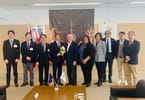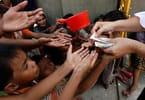Traditionally in most of the northern hemisphere the month of September is called the “dog days” of summer. The name derives from the fact that it is often too hot for even a dog to want to wander along the streets. During previous years, September was a time when people returned from vacations, schools reopened, and business returned to a more normal routine. The summer’s end was also high tourist season in much of the world. The transition period between summer and autumn seemed to many to be a period of full airplanes and hotels and a period when travelers had frayed nerves. This description was the “then” but 2020 and the COVID-19 pandemic has seen the birth of a new world of travel. We now live in a time when things are often beyond the tourist professional’s control. No one knows when a real therapy or vaccine against COVID-19 will take place, how safe these new medical procedures will be or how the traveling public will react. The same can be said for everything from school attendance to sporting events. To add to the uncertainty in much of the world September means weather related challenges that turn into travel delays. The cumulative result of all these uncertainties might result, for those who are traveling, in still greater frustrations and travel anger.
September then, is a good month to review what in the past has upset our customers, what caused tempers to flare, and how we had to maintain control over often uncontrollable situations, such as weather-related delays. By reviewing such policies, we prepare the industry to learn from its past and prepare new and innovative ideas for the hoped for return to “travel normality” in a post-pandemic world. With the tourism industry around much of the world in a state of pause or semi-pause, this is a good time to take the opportunity to test our skills at turning difficult situations in to successes and learning how to lessen anger and increase product and customer satisfaction. To help you survive this difficult period in tourism, consider the following:
-Remember that, in the world of tourism, there is always the potential for conflict and customer dissatisfaction. No matter what you do, or what happens, there will always be those who want more or are not pleased with what you do. Due to added safety and health measures we might assume that travelers will paying a great deal for their trips and want to feel in control, even in situations where social distancing has become the rule. Develop scenarios in which the customer has some sense of control no matter how slight. For example, instead of merely saying that something cannot be done/accomplished, try to phrase the response as a potential alternative. When offering these alternatives, make sure that front line personnel always remain alert and demonstrate patience. Often, a tourism crisis can be eliminated not by solving the entire crisis, but by allowing the customer to feel that he or she has won at least a small victory.
-Know your legal, emotional and professional limitations. There are many reasons that people travel, some for pleasure, some for business, and some for social status. For those in the latter group, it is important that tourism professionals understand the power of “social standing”. People who travel may have many qualms and fears and simply do not to want to hear excuses. Travelers might be even faster to anger and slower to forgive. In dealing with your clients and customers, first know what angers you and when you have reached your limits. Do not bring your problems to work and remember that travel in a post-pandemic world is considered by many to be risky and unnerving. Be wise enough to recognize you’re your staff or you have reached its emotional limits, that trouble is brewing and that you need help.
-Be in control of yourself. Tourism is an industry that challenges our own sense of self-worth. The public can be both demanding and at times unfair. Often, events occur that are simply out of our control. It is during these times that it is essential to control one’s internal fears and emotions. If your words express one idea and your body language states another, you will soon lose credibility.
-Tourism requires multi-dimensional thinkers. Tourism demands that we learn how to juggle a number of unrelated demands and needs at the same time. It is essential that tourism professionals train themselves in the art of information manipulation, event management, and personalities coping. During these difficult periods, front line people need to be able to juggle all three skills at the same time.
-Successful tourism centers deliver what they promise. There is nothing worse than over –promising and under- delivering. In the world of COVID-19 over promising can destroy a tourism or travel business. Traditionally these industries have suffered from over-marketing and promises of more than they can deliver. Never sell a product that your community/attraction does not offer. A sustainable tourism product starts with honest marketing. In a like manner never over-promise health protection. Be clear about what precautions you are taking and what you mean by the terms that you are using.
-Successful tourism leaders know when to pay attention to their instincts. Instincts can often be a major help, especially in time of crisis. Depending only on instincts, however, can lead to a crisis. Combine instinctive knowledge with hard data. Then before making a decision, organize both sets of date in a logical fashion. Our instincts can provide those rare moments of brilliance, but in most cases use base your decisions on hard data and good research and then instincts.
-Successful tourism businesses also work at taming a difficult situation rather than dominating it. Tourism specialists have long realized confrontations are usually lose-lose situations. Real success comes in knowing how to avoid a confrontation. During moments of anger, be prepared to think on your feet. One way to learn the art of thinking on one’s feet is by developing conflict scenarios and training for them. The better trained our tourism and front line personnel are, the better they become at crisis management and making good decisions. In the post-COVID world be clear as to what you can and cannot do for your customers and always be truthful.
-Be cognizant of an ever-changing business environment and know how to seek opportunities from difficult or unstable moments. If you find yourself in a confrontation, make sure that you handle it without bruising your customer’s ego. Challenge your attacker in a way that permits the upset customer to see his/her mistake without losing face. Remember that a crisis is composed of both a danger and an opportunity. Seek out the opportunity in every tourism business crisis.
-Try to make customer part of your team. No one can provide a safer environment without the cooperation of both the tourism and travel provider and his or her customers. When trying to win over an angry customer, be sure to maintain good visual contact and be positive in both the words that you use and the tone of speech employed. Let the customer vent first and only speak after the venting stage has been completed. Allowing the customer to vent, no matter how unfair his or her words may be, is a good way to demonstrate that you respect him/her even if you disagree. The create mutually satisfactory solutions and make the customer part of that solution.
-Remember that you need the customer more than s/he needs you. As unfair as it may be, tourism is a customer-driven industry. Tourism is not about equality, rather it is about service and doing for others. Tourism naturally has a hierarchy and those agencies that take this social hierarchy into account tend to be the most successful.
-Ask for suggestions. Much is going to have to change in a world where people have gotten used to not traveling, and many have modified the way that they do business. Solicit ideas and suggestions from customers and turn your business into a team effort. Tourism and travel have never been 100% safe but together we can work to make it safer and create ‘safer tourism” products.
The author, Dr. Peter Tarlow, is leading the SaferTourism program by eTN Corporation. Dr. Tarlow has been working for over 2 decades with hotels, tourism-oriented cities and countries, and both public and private security officers and police in the field of tourism security. Dr. Tarlow is a world-renowned expert in the field of tourism security and safety. For more information, visit safertourism.com.
#rebuildingtravel
WHAT TO TAKE AWAY FROM THIS ARTICLE:
- With the tourism industry around much of the world in a state of pause or semi-pause, this is a good time to take the opportunity to test our skills at turning difficult situations in to successes and learning how to lessen anger and increase product and customer satisfaction.
- Often, a tourism crisis can be eliminated not by solving the entire crisis, but by allowing the customer to feel that he or she has won at least a small victory.
- September then, is a good month to review what in the past has upset our customers, what caused tempers to flare, and how we had to maintain control over often uncontrollable situations, such as weather-related delays.





















